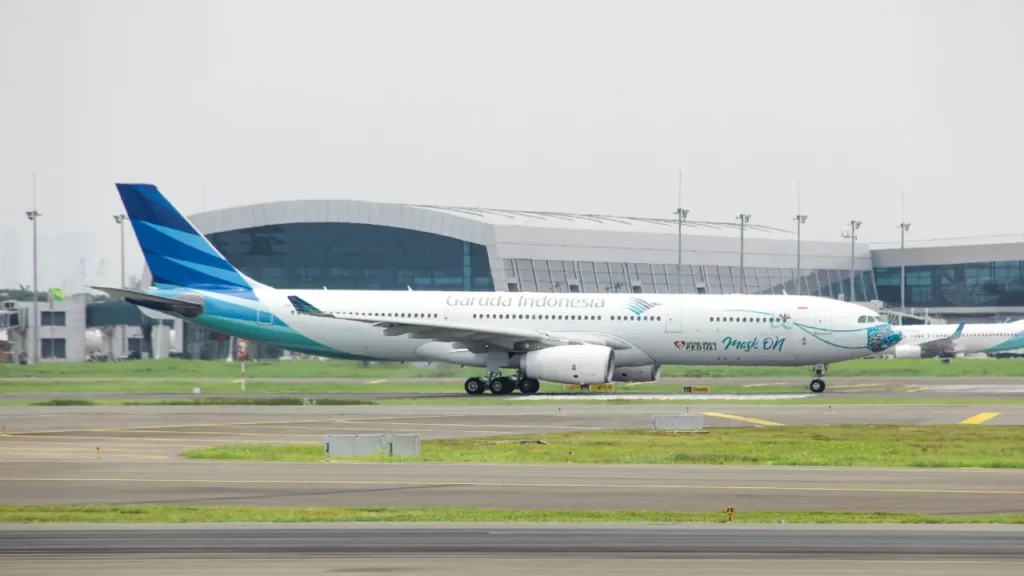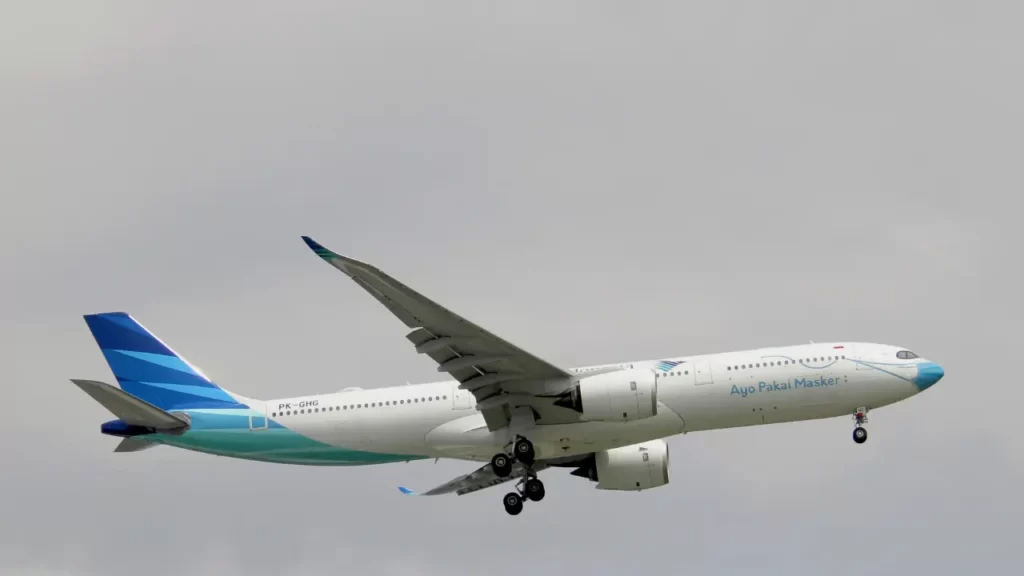
Garuda Indonesia Overview:
Garuda Indonesia is the national flag carrier and largest airline of Indonesia. Established in 1949, the airline has grown to become a prominent player in the global aviation industry. Here is an overview of Garuda Indonesia:
Table of Contents
Founding and Early Years (1949)
Garuda Indonesia was founded on January 26, 1949, as KLM Interinsulair Bedrijf, a subsidiary of the Dutch airline KLM. It became the national airline of Indonesia after the country gained independence later that year.
Nationalization (1950)
In 1950, the Indonesian government nationalized the airline, and it was rebranded as Garuda Indonesian Airways. The name “Garuda” is derived from the mythical bird in Hindu and Buddhist traditions, symbolizing Indonesia’s national identity.
Fleet and Route Expansion (1950s-1970s)
During the 1950s and 1960s, Garuda Indonesia expanded its fleet and route network, connecting various domestic and international destinations. The airline played a crucial role in promoting air travel within Indonesia and beyond.
Jet Age and Modernization (1970s)
Garuda Indonesia entered the jet age in the 1970s with the introduction of jet aircraft. The airline continued to modernize its fleet, incorporating more advanced and fuel-efficient planes to enhance its operational capabilities.
Safety and Service Excellence
Garuda Indonesia has focused on maintaining high safety standards and service excellence. The airline has received recognition for its commitment to safety, and it has implemented measures to enhance the overall passenger experience.
SkyTeam Alliance Membership (2014-2018)
Garuda Indonesia joined the SkyTeam alliance in 2014, forming partnerships with other major airlines worldwide. The alliance membership facilitated code-sharing agreements, joint ventures, and collaborative efforts to improve global connectivity.
Fleet Diversity – Boeing and Airbus Aircraft
Garuda Indonesia operates a diverse fleet of aircraft, including both Boeing and Airbus models. The fleet includes narrow-body and wide-body aircraft, such as the Boeing 737, 777, Airbus A330, and A330neo.
Cabin Classes and Services
Garuda Indonesia offers various cabin classes, including Economy, Business, and First Class. The airline provides in-flight entertainment, Wi-Fi, and other services to enhance the passenger experience.
Awards and Recognition
Garuda Indonesia has received numerous awards for its services, including recognition for its cabin crew, in-flight entertainment, and overall airline performance. The awards highlight the airline’s dedication to excellence.
Environmental Initiatives
Garuda Indonesia has implemented environmental initiatives to reduce its carbon footprint. The airline has explored sustainable practices and investments in fuel-efficient technologies to contribute to environmental conservation.
Digital Transformation
Like many modern airlines, Garuda Indonesia has embraced digital transformation. The airline provides online booking, mobile apps, and other digital services to enhance the convenience of passengers.
Financial Challenges and Restructuring
Garuda Indonesia faced financial challenges, including debts and losses. The airline underwent restructuring efforts to address financial issues and improve its financial sustainability.
Impact of COVID-19 Pandemic (2020s)
The COVID-19 pandemic significantly impacted the global aviation industry, including Garuda Indonesia. The airline faced challenges related to travel restrictions, reduced demand, and operational adjustments to navigate the crisis.
Garuda Indonesia History

Garuda Indonesia History:
Founding and Early Years (1949)
Garuda Indonesia was founded on January 26, 1949, under the name KLM Interinsulair Bedrijf as a subsidiary of the Dutch airline KLM. It was established to serve the air transportation needs of the newly independent Republic of Indonesia.
Nationalization (1950)
In 1950, following the nationalization of Dutch assets in Indonesia, the airline was officially named Garuda Indonesian Airways. The name “Garuda” is derived from the mythical bird in Hindu and Buddhist traditions, symbolizing Indonesia’s national identity.
Rapid Expansion (1950s-1960s)
Garuda Indonesia rapidly expanded its domestic and international routes during the 1950s and 1960s. The airline played a crucial role in connecting the vast archipelago of Indonesia and establishing air travel as a viable means of transportation.
Jet Age and Modernization (1970s-1980s)
In the 1970s, Garuda Indonesia entered the jet age with the introduction of jet aircraft. The airline continued to modernize its fleet, incorporating Boeing and McDonnell Douglas planes to replace older propeller-driven aircraft.
Skytrax 5-Star Airline (2009)
Garuda Indonesia achieved a milestone in 2009 when it was awarded a 5-star rating by Skytrax, an international air transport rating organization. This recognition affirmed the airline’s commitment to service quality and customer satisfaction.
Fleet Diversity – Boeing and Airbus
Garuda Indonesia has maintained a diverse fleet over the years, including Boeing and Airbus aircraft. The airline operated various models, such as the Boeing 737, 747, 777, as well as the Airbus A330 and A330neo.
Financial Challenges and Restructuring (2010s)
In the 2010s, Garuda Indonesia faced financial challenges, including debts and operational losses. The airline underwent restructuring efforts to address these issues, streamline operations, and enhance financial sustainability.
SkyTeam Alliance Membership (2014-2018)
Garuda Indonesia joined the SkyTeam alliance in 2014, becoming the second Southeast Asian airline to be part of a global airline alliance. The alliance membership allowed Garuda to expand its network through code-sharing agreements and collaborations with other member airlines.
Service Excellence and Awards:
Garuda Indonesia has received numerous awards for its services, including recognition for cabin crew hospitality, in-flight entertainment, and overall airline performance. The awards highlighted the airline’s dedication to providing a high level of service to passengers.
Digital Transformation and Innovation
Garuda Indonesia embraced digital transformation, introducing online booking, mobile apps, and other digital services to enhance the passenger experience. The airline incorporated technological innovations to improve operational efficiency and customer convenience.
Environmental Initiatives
In alignment with global efforts toward sustainability, Garuda Indonesia implemented environmental initiatives. The airline explored eco-friendly practices, fuel-efficient technologies, and sustainable operations to reduce its environmental impact.
Impact of COVID-19 Pandemic (2020s)
The COVID-19 pandemic significantly affected the aviation industry, including Garuda Indonesia. The airline faced challenges due to travel restrictions, reduced demand, and the overall impact on the global air travel market.
Garuda Indonesia continues to be a vital player in Southeast Asian aviation, connecting Indonesia with the world. Its history reflects a journey of growth, modernization, and commitment to service excellence. Please note that developments may have occurred since my last update in January 2022.
